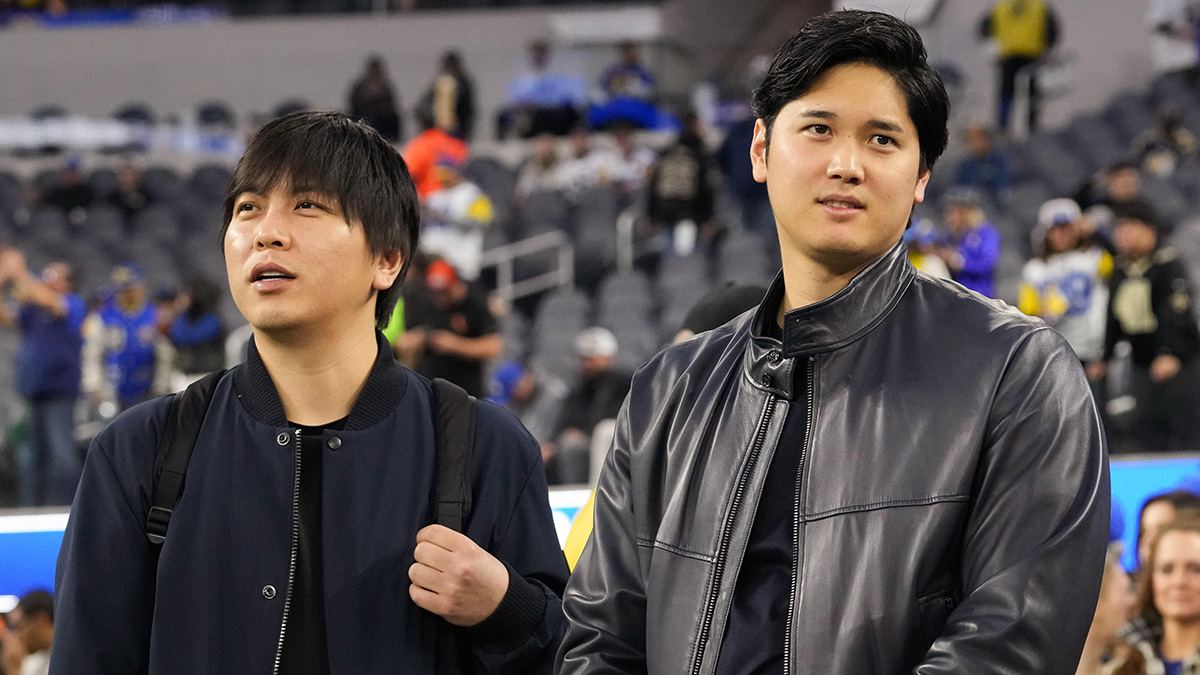Pardon the gambling analogy, but Shohei Ohtani is all-in. His interpreter lied, cheated, and stole. Ohtani doesn't gamble or pay off bookies. He knew nothing until the media started asking questions. He is 100 percent innocent.
If you're skeptical of this defense, it's because we've heard it before. It generally ends with a little guy – in this case, translator Ippei Mizuhara – being fitted for bus-sized tire tracks as far richer entities calculate how quickly the whole situation can vanish.
It's entirely possible everything unfolded exactly as Ohtani described Monday during a statement-reading that raised as many questions as it answered. How did Mizuhara have access to his bank accounts? Why didn't Ohtani or his accountants notice more than $4 million missing? How come Ohtani's team briefly confirmed Mizuhara's story of paid-off debts before the lawyers stridently reversed course? If it's because Mizuhara was doing the translating and lying directly to his client's face, did Team Ohtani really only employ a single bilingual staff member?
Stay in the game with the latest updates on your beloved Boston sports teams! Sign up here for our All Access Daily newsletter.
This story already echoes prior scandals that shifted blame to low-level, rogue employees. From Brian McNamee to Cousin Yuri to the FedEx guy to a couple of Dorito Dinks with the Patriots, it's the little people who inevitably find themselves in the crosshairs while the million-dollar legal teams spin damage control.
Mizuhara is already receiving that treatment. He's simultaneously being portrayed as a degenerate gambler and a master criminal, and for the sake of Ohtani, the Dodgers, and Major League Baseball, this had best be true.
MORE OHTANI COVERAGE
It hardly ever works out so neatly, though. McNamee, a former New York City Cop, testified that he injected would-be Hall of Famer Roger Clemens with steroids. He ended up sued for slander and dragged before Congress for his troubles.
Meanwhile, Yuri Sucart shifted from inner-circle confidante to alleged extortionist during the Biogenesis scandal that forever tarnished his younger relative, Alex Rodriguez. Labeled "Cousin Yuri" in the tabloids, Sucart supplied A-Rod with steroids for more than a decade before the two had a falling out over a few hundred thousand dollars the former supposedly spent frivolously. Sucart later pleaded guilty to drug charges and was sentenced to seven months in jail.
The FedEx guy was actually Dino Laurenzi Jr., the MLB-approved specimen collector whom Brewers outfielder Ryan Braun baselessly accused of mishandling his urine sample after testing positive for steroids in 2011. Because Braun provided the sample on a Friday and no FedEx facilities were open that weekend, Laurenzi stored it in his house until Monday. Braun seized upon that window to have his positive results tossed on a technicality, smearing Laurenzi in the process. Only two years later, when Biogenesis ensnared him, too, did Braun come clean and apologize.
That brings us to the most relevant local example, which of course would be Deflategate. The Patriots and quarterback Tom Brady nearly took their case to the Supreme Court before accepting a four-game suspension in the face of a league determined to make the Patriots pay. In the meantime, low-level staffers John Jastremski and Jim McNally became the bumbling faces of the scandal, their text messages dissected meticulously, with McNally's snack-chip-based insult entering the lexicon. Nearly a decade later, they remain a punchline.
It's too soon to say how Mizuhara will remembered. It's entirely possible that the story Ohtani told on Monday is the complete and utter truth, in which case MLB can exhale and return to the business of marketing its biggest international superstar, and Mizuhara can face the consequences.
But if there's a single receipt (like, say, Mizuhara's version of the Deflator text), then the story is about to get a whole lot uglier. The little guy may still end up under the bus, but not before he takes the big guy with him.



